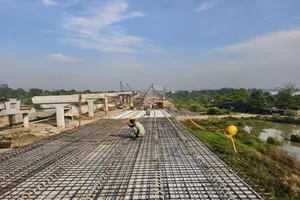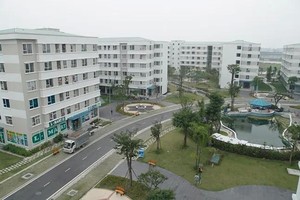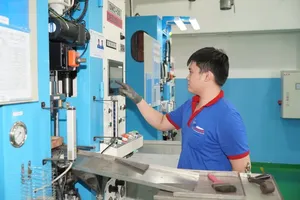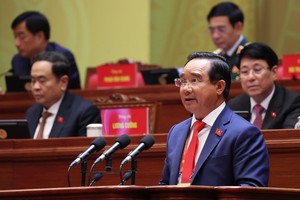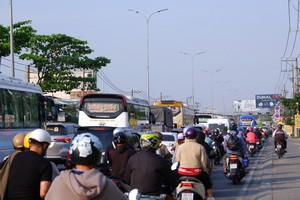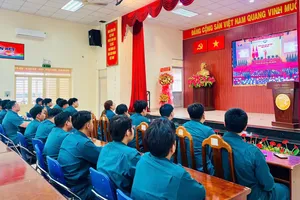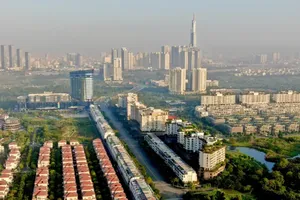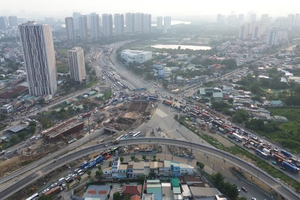At a press conference providing information on socio-economic issues in Ho Chi Minh City, Ngo Hai Duong, Head of the Road Transport Management Division informed about the green transport development orientation in Ho Chi Minh City. The press conference was organized by the Propaganda and Mass Mobilization Commission of the Ho Chi Minh City Party Committee in coordination with the Department of Culture and Sports yesterday afternoon.
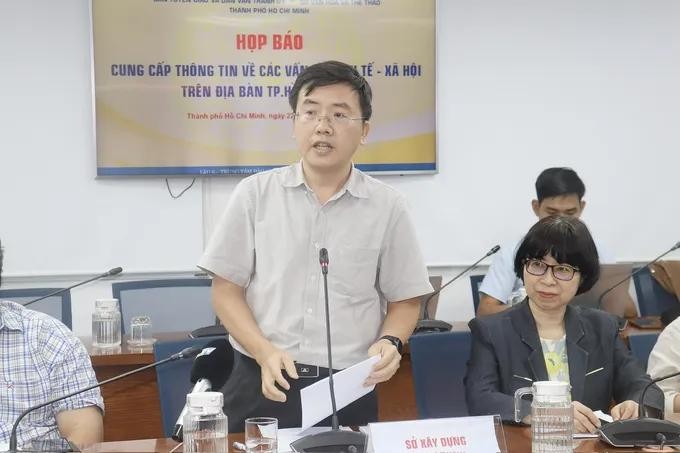
According to Mr. Ngo Hai Duong, Ho Chi Minh City currently operates 138 bus routes with a fleet of 2,221 vehicles. Among these, 19 routes utilize electric buses (160 vehicles), and 18 routes operate on compressed natural gas (CNG) with 528 buses. Collectively, these environmentally friendly vehicles account for approximately 31 percent of the city’s total bus fleet.
The municipal People's Committee has tasked the Department of Construction with developing a two-phase project aimed at controlling vehicle emissions.
Phase 1 involves formulating and recommending policies for the People's Committee to propose to the City People's Council. This includes issuing a roadmap and supportive measures for transitioning the public bus system to electric and green energy-powered vehicles, with implementation beginning in 2025. Phase 2 focuses on drafting further policies to reduce emissions from the remaining road vehicles throughout the city.
In particular, the Road Transport Management Division focuses on developing policies to encourage, provide incentives and a roadmap for converting vehicles from using fossil fuels to clean energy and green energy.
Simultaneously, the Department of Construction is tasked with developing policies to facilitate the replacement of older vehicles with new, electric and green energy-powered alternatives. The department is also responsible for proposing comprehensive emission control strategies for road vehicles in Ho Chi Minh City, with targets set for 2030 and a long-term vision extending to 2050.
The Department has reported to the Ho Chi Minh City People's Committee that it has completed Phase 1 of the vehicle emissions control project.
At a recent press conference, Director Le Thanh Hai of the Center for Economic Application Consulting under the Ho Chi Minh City Institute for Development Studies announced that a structured roadmap for transitioning gasoline vehicles to electric ones is underway. A draft policy is expected to be released in June for consultation with experts, scientists, and regulatory agencies. After incorporating feedback, the finalized proposal will be submitted to the municipal People's Committee in July.
Preliminary studies highlight that technology-based transport vehicles and two-wheeled delivery vehicles are currently among the city's largest emission contributors. In 2023, the Institute surveyed over 400 drivers from platforms such as Grab, Be, and Gojek. The findings revealed that at an average daily travel distance of 100 kilometers, drivers spend approximately VND70,000 to VND100,000 on gasoline. By contrast, a similar survey of Green SM drivers using electric vehicles indicated a daily charging cost of only around VND20,000 for the same distance.
Calculations show that by switching, each driver can save between VND40,000 and VND60,000 per day. Assuming a 25-day work month, this translates to over VND1 million in monthly savings for the driver.
